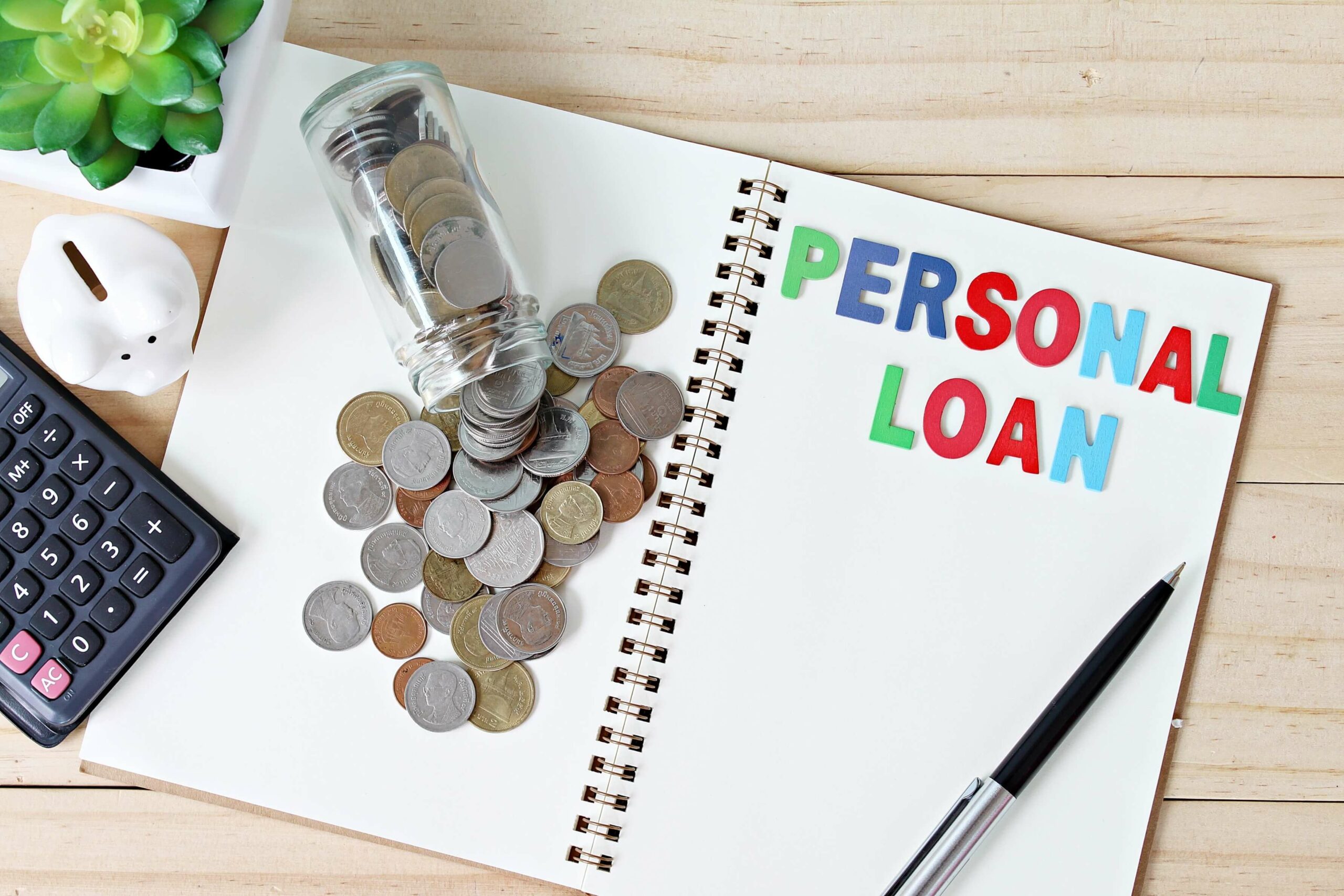In case you have to make a large purchase and you don’t have the money for it, a personal loan will lend you the money for the purchase and you’ll have to pay it back over time. A personal loan will prove very useful when it comes to financing expenses like purchasing a car, a home, or paying college tuition.

How Do Personal Loans Work?
A financial institution like a credit union, online lender, or bank issues a personal loan in the form of credit. Once your loan application is approved, you will receive the funds via direct deposit or check in your bank account.
The thing with revolving credit, like credit cards, where the borrowers have a fixed credit line that they can spend against and can use this credit over and over again. This will be applicable as long as you’ve not expended your full line of credit. Borrowers, on the other hand, receive a lump sum amount with a personal loan.
If you need an additional credit, you will have to apply for another loan and get approved for it.
Borrowers are asked to repay personal loans over a period of time that will include interest and fees. Lenders have their specific terms for payment.
What Are The Types Of Personal Loans?
Personal loans can be either secured or unsecured loans with a variable interest rate or a fixed interest rate. All of this will depend on the terms of the loan.
- Fixed Interest Rate:
The rate of interest will remain the same throughout the entirety of the loan. You’ll pay the same rate every month.
- Variable Interest Rate:
The rate of interest fluctuates over time with another index rate or the prime rate. The amount of money paid every month by the borrower may rise or fall.
A majority of installment loans are personal loans, borrowers usually apply for this to deal with huge expenditures. Installment loans have a fixed rate of interest and terms. They need to be paid on a monthly basis.
Unsecured Personal Loans:
After applying for an unsecured personal loan, lenders may verify your credit history, financial history, and financial information. These are used to determine whether you’re qualified for an unsecured personal loan. In this type of loan, borrowers don’t have to put up any kind of collateral. Your credit score along with other factors determine your approval for a loan.
Secured Personal Loans:
When you apply for a secured personal loan, you will need collateral. Any valuable or physical asset like a car or house can be used as your collateral. A type of secured personal loan is a home equity loan where the lender will use your home as collateral if you default on your repayment terms.
Debt Consolidation:
A debt consolidation loan will enable consumers to streamline their debt into a one-time recurring payment rather than multiple ones.
Borrowers use debt consolidation personal loans to take out a new loan and pay off the existing individual loans. Rather than going through the hassle of paying different accounts with different payment requirements and different interest rates, the borrower will be able to pay off one loan with one rate of interest. Borrowers often combine their credit card debt into a single debt consolidation loan. This may include other types of debt.
What Are Personal Loans Used For?
You can use personal loans for almost anything. The restrictions on personal loans are limited on how a consumer uses the loan funds. Borrowers receive a lump sum amount of money when they qualify for personal loans.
The Federal Reserve Bank of Philadelphia, published an article stating that a large number of consumers are using online unsecured personal loans for credit card payoff and debt consolidation. Personal loans can also deal with unexpected expenses or finance large expenses. Based on the needs of the consumer, this can be for car repair, home repair, or medical bills. Ipsos conducted a survey for Forbes Advisor where 25% of respondents took a personal loan for home improvements and 21% used a personal loan to pay their medical bills.
How Much Money Can I Borrow With A Personal Loan?
The amount of money that you will qualify for when you apply for a personal loan will vary. It depends on your credit history. If you have a bad credit score, you won’t qualify for a large loan. Borrowers are charged higher interest rates with bad credit scores.
According to the TransUnion Quarterly Industry Insights Report, the average amount sanctioned for an unsecured personal loan was $7,129 in the second quarter of 2021.
What Credit Score Do You Need For A Personal Loan?
A specific credit score isn’t mentioned in order to get a personal loan. The requirements for personal loans vary from one lender to another. If you have a high credit score, the chances of getting approved for loans increases.
According to the Experian 2020 Consumer Credit Review, the average FICO credit score was 689 for borrowers who qualified for a personal loan in the year 2020. However, that shouldn’t deter you. You will find lenders who approve bad credit loans. Some lenders use other personal information to determine whether or not you are qualified for a loan, this includes your income. This alternative financial data will decide your creditworthiness during the application procedure.
What Kind Of Interest Rate Is Applicable On A Personal Loan?
Personal loans don’t have a standard interest rate and the rate of interest will vary. Different lenders charge different rates.
There are a few factors that have an impact on personal loans like the amount of the loan, credit history of the borrower, debt-to-income ratio, duration of the loan, and borrower’s financial condition. Your loan terms will be highly favorable if you have good credit scores.
Lenders also charge application fees, late fees, origination fees, and prepayment penalties aside from rate of interest. The annual percentage rate will include all of the above.
The Average Interest Rate On A Personal Loan
According to the Federal Reserve, a 24 month personal loan at an average commercial bank had an interest rate of 9.58% in 2021’s second quarter. The average rate of interest for a 36 month, unsecured fixed-rate loan in June 2021 was 8.95%, this was reported by the credit unions.
How Can You Get A Personal Loan?
When you find a personal loan best suited for you, it will offer you a suitable interest rate and favorable loan terms. You should shop around for a personal loan that meets your financial situation. Keep in mind that the rate of interest, repayment terms, and fees are crucial when considering a personal loan.
Lenders will do an extensive check on your credit history to decide your creditworthiness. This will help lenders understand how likely you’re to pay your loan. Some lenders demand specific credit scores and have strict qualifications when it comes to approving personal loans.
Almost all lenders will go through your credit history when your loan application is up for review. AnnualCreditReport.com offers a free credit report. This will help borrowers understand their credit history before they apply for a loan.
You will have a better knowledge of the types of loans and rates that you will qualify for. If you check your credit history it won’t have any impact on your credit score.
Do Personal Loans Have An Impact On The Credit Score?
Your credit score will be affected by a personal loan. Based on the type of lender, your credit report might be pulled for soft credit inquiry or hard credit inquiry. Though a soft credit inquiry doesn’t have an impact on your credit score, a hard credit inquiry will lower your credit score.
Depending on the kind of lender and the personal loan, your loan might show up on your credit report. Lenders can report your repayment history to TransUnion, Equifax, Experian (the major credit bureaus). If your on-time loan repayments are reported by the lender, borrowers will be able to build their credit history. However, if you default on your loan payment it will have a negative impact on your credit score. A personal loan will have an impact on your credit score and diversify your credit mix.
Where Do I Get A Personal Loan?
Personal loans can be availed from banks, online lenders, and credit unions.
If you’ve an impressive credit score, the chances of qualifying for a loan will be higher. This doesn’t mean if you have a low credit score you won’t get a personal loan.
What Are The Alternatives Of A Personal Loan?
Personal loans can prove to be very useful, however, they are not the only option that will help you get credit. You can fund your unexpected emergencies or large purchases with these alternatives –
Personal Line Of Credit
You can find a personal line of credit at a credit union or a bank. It is similar to a loan and credit card. Once the lender approves your request, you will have a personal line of credit that will enable you to withdraw funds as and when necessary. Interest will be paid on the borrowed amount. It will depend on the specific repayment structure of the lender.
Credit Cards
Users can buy almost anything using a credit card if it’s within the credit limit. Credit cards can be used repeatedly unlike personal loans. You can repay the balance every month and avoid acquiring high-interest debt.
If your credit score is high, you can avail a credit card with 0% APR. No interest will be charged during the introductory period of the card.
Peer-to-peer Loans
Individual investors fund peer – to – peer loans rather than one financial institution. These loans are similar to unsecured personal loans which means you can use the money for any expenditure.


